Is Blogging a Good Idea for eCommerce Businesses?

Much of the time, when we talk about blogging, it comes from one of two perspectives. First, it's from a site that starts with a blog and eventually starts selling something – be it through affiliate marketing or direct sales – as a way to keep the lights on. Second, it's from companies selling a service, a platform, or an app.
Neither of these is quite an eCommerce site. Your typical eCommerce site already has a storefront set up, with plenty of content, but nothing that would really qualify as content marketing. It may be perfectly serviceable as a store, but it lacks the content that draws people in.
 30 Second Summary
30 Second Summary
You can improve your online store's success by adding a blog. Your typical product pages only reach people already looking for specific items, but a blog helps you connect with many more potential customers who are researching and comparing options. You'll improve your Google ranking because others will link to your helpful content instead of just product pages. When you start your blog, focus on helping readers rather than pushing sales. Keep your posts relevant to your industry and write consistently. You'll need patience - unlike paid ads, blogs take time to show results but build lasting value. Most online store platforms already include blog features you can easily start using.
Google, eCommerce, and Content Marketing
What's the problem with the content you see on your typical eCommerce site? It's just not that attractive! A product description is fine, but it's only really valuable to people who are already aware of the product and looking for it. You might be at the top of the search queries in that specific instance, or you might not. Your site won't have a lot of Google influence, compared to competitors who buy into content marketing.
What about people who want to know about the benefits of the product, not just the description and technical specifications? What about the people who want to compare that product to other, similar products? What about the people who are just looking to see what's out there, with no intent to make a purchase right away?
All of these sorts of queries are best answered by long-form content, not by product pages and descriptions. All of that traffic is traffic you lose by not having that content. Sure, you may get some traffic from those queries, but when they see that you don't answer their question, not only will they leave to find someone else who does, but they'll remember your site as the one that failed them. What do you think that means when they come around looking to buy?
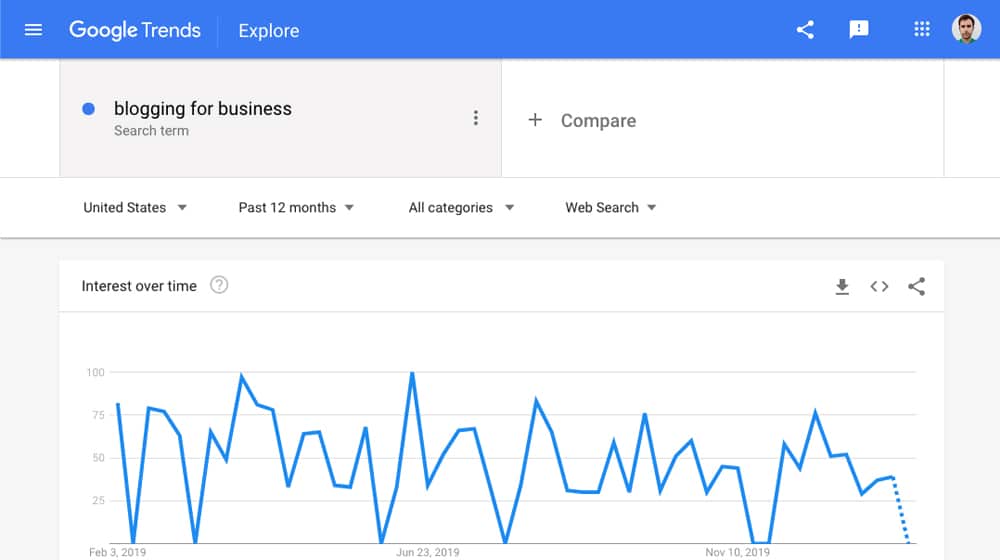
How does Google play into all of this? They aren't just referrers. Google has so much power that they dictate what you should and shouldn't do with your site, simply by existing. Millions upon millions of people use Google as their portal to the rest of the internet every day. Browsers use the address bar as a search bar by default. It's the window through which people see the internet.
So when Google says you should or shouldn't do something, it's best to listen. They're the ones that can refer traffic to you or, if you disobey them, cut it off. They can, quite literally, make or break entire businesses without even noticing. The average small eCommerce business is so far beneath their notice that it might as well not exist.
Taking advantage of Google is how small businesses can thrive. So how do you do that? If you guessed "with a blog", thank you for paying attention.
The Benefits of a Blog for an eCommerce Site
So what benefits does a blog bring to the table? Let's get technical for a moment.
You want to get more traffic from Google. To get more traffic from Google, you need to be placed higher in the Google search results.
Google ranks sites based on a lot of different factors – over 200 of them – but some of them are stronger than others. Among the strongest of all are backlinks. Getting links from other sites pointing to yours is the most important part of all of marketing, at least as far as Google is concerned.
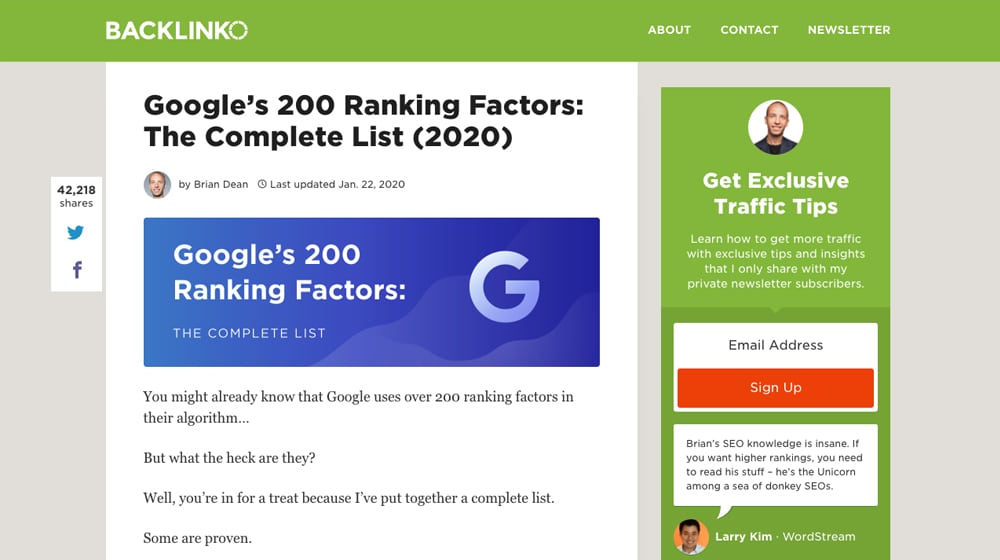
Of course, just getting links isn't enough. Those links have to come from good sites and they have to point at relevant pages. There's a lot going on with the analysis of links behind the scenes.
When someone decides they want to link to your site, and you're an eCommerce site without a blog, they basically have two options: a product page or your homepage. Homepage links are inherently less valuable in most cases than links to specific content. Product page links are fine if the link is specifically talking about the product, but if they're trying to link to something more informational, it's not going to be very useful.
Content gives you a much wider variety of possible pages for other sites to link to. Every article you write about how to use a product, the benefits of a product, tips for repairing a product, thoughts about the broader industry, or what have you, are opportunities for other sites to link to you.
Producing a blog has other benefits as well.
- It positions you as an expert or thought leader in your industry. A blog is often the difference between a no-name dropshipper selling Chinese crap and a trusted brand building up a following and culture around their products.
- It gives you the opportunity to network with and form relationships with others in your industry. With more influence comes more power, more sales, and more profits.
- It makes you an informational resource for your potential and actual customers. When people want to know some detail about your products or your industry, they go to Google, and Google points them to you. In the future, they go right to you first. It keeps them engaged and aware of your brand.
- It has a feedback effect with other marketing efforts. Social media marketing in particular is a massive and hugely valuable channel that is made infinitely more usable and effective when you're promoting blog posts through it rather than products, at least with the organic social media feeds. Paid ads, of course, should always focus on sales drivers.
- It's basically free. Blogging isn't strictly free, when you consider the cost of producing writing, the time spent by the people managing your blog, or the cost of hiring a blog management company, but it's still one of the cheapest possible marketing channels out there.
Remember: every single piece of content you publish is an opportunity to attract new people and draw customers deeper into your sales funnel.
You Might Already Have a Blog
Blogging is so important to modern online business that many eCommerce platforms come with a blogging platform built in. It's entirely possible that your site already has a blog, but you've just never taken the opportunity to use it. Until you do, it's safely tucked away, so you don't get some kind of penalty for a filler page or blank blog posts or anything of the sort.

Shopify, for example, is one of the most prominent eCommerce platforms available today. Tons of businesses use it as their base architecture, built out with plugins and added features and themes to suit their brand. Shopify also comes with a blog by default, which is trivially easy to activate and start using.
BigCommerce is another of the major eCommerce platforms, up there with Shopify in terms of broadly-used platforms for online storefronts. Also like Shopify, they have a built-in blogging feature, with a bunch of basic and intermediate features you need to make a blog a success. If you want something more robust, BigCommerce also has an official link to WordPress, so you can operate both your store and your blog with no issues.
Another of the top eCommerce platforms is 3DCart. It's broadly used by small businesses, particularly in a few specific niches, and you guessed it: they too have a built-in blogging feature.
Magento is a top-tier eCommerce platform pick for mid-range businesses and those starting to reach large business status, and while they don't have a single built-in blogging option, they have a range of different plugins you can add to the platform to create a blog with integration.
The fact is, nearly every eCommerce platform available online either has a blog built into its platform, has a plugin you can use to activate a blog with trivial ease, or can link directly into a new WordPress blog you set up. The barrier to entry for starting a blog is absolutely not a technical one.
Common eCommerce Blogging Mistakes
There are a few common mistakes I see eCommerce businesses make when they try to start a blog. I'd like to go over them before you get too deep in the process, so you know that they're coming and how to avoid them.
The first mistake is thinking that everything you write about has to somehow be about you. Blogging is not like paid advertising! A blog is meant to be informative, instructive, or entertaining.
We create blog content that converts - not just for ourselves, but for our clients, too.
We pick blog topics like hedge funds pick stocks. Then, we create articles that are 10x better to earn the top spot.
Content marketing has two ingredients - content and marketing. We've earned our black belts in both.
Many eCommerce sites come into the blogging world trying to figure out angles for their products. "How can I write a post that sells my vacuum cleaners?" they ask. Every post they write ends up focusing on some product, some keyword, some way to shoehorn in their brand name or a link to a product page.
When you're out browsing the web, and you come across a blog post that seems informative but ends up existing solely to sell a product, do you trust that blog post? Do you read it and think "this is a piece of content I liked reading"? Do you take note of the brand name so you can come back to them later? I wager not. Most people distrust this kind of content, because it's the kind of content that spammed the internet years ago and was worthless for anyone looking for actual information.
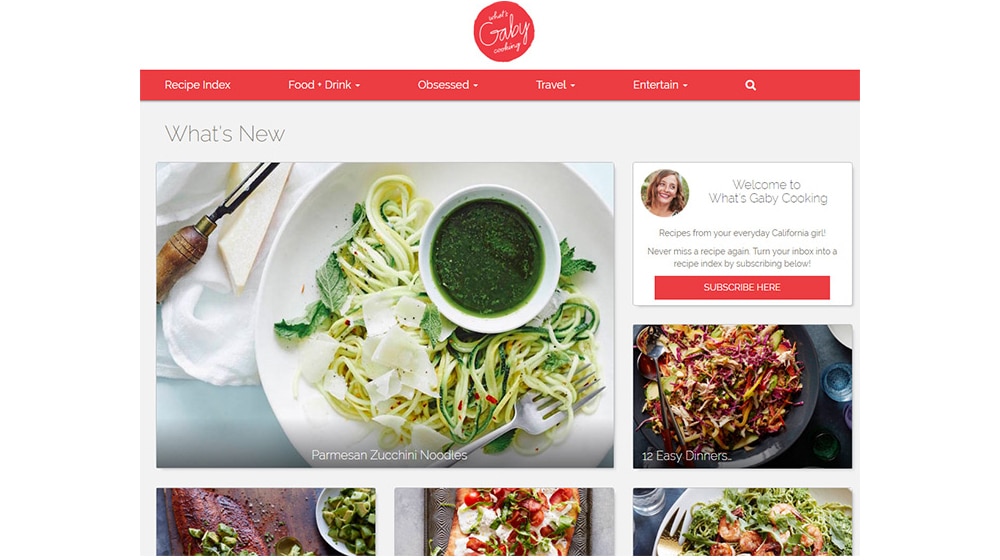
No, the real answer for blogging is just to write about your industry, your niche, and your products in an informative way. You'll notice that the post you're reading right now has made no mention of a blog management service, no mention of what my business does, and has no links to my own landing pages within the content. That's because it's much more effective for me to educate you about the blogging industry than it is to just try to sell you my services.
In case you're curious what it actually means to be too promotional, there are some great resources to read up on it, like this post here.
The second of the major mistakes is thinking blogging is going to be a magic bullet with results that show immediately. You might be used to paid advertising, where results start coming in pretty much immediately upon starting up your ads.
Think of paid advertising like a bungee slingshot ride at a carnival. You start at the bottom and you hit the button, and off you go, flung into the air. Yet just as fast as you rise, you fall again when the ads turn off.
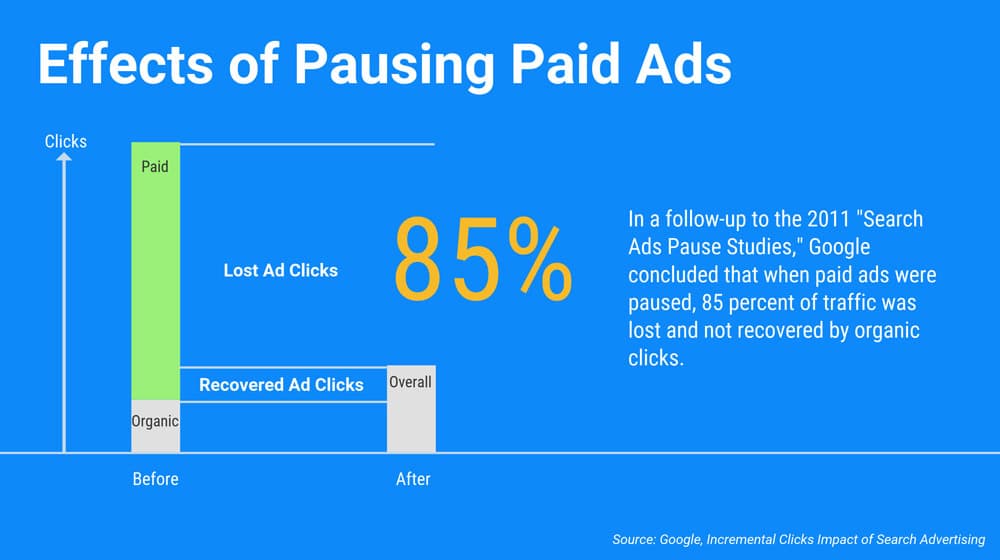
Blogging, conversely, is more like a ski lift. You start at the bottom, and progress up the mountain is slow, but once you reach the end of the lift, you aren't back where you started, you're at the top.
The analogy fails a bit because blogging doesn't have a defined peak as an end goal. Blogging just keeps going up and up until your business has reached a market saturation point where you can't really get any bigger.
Far, far too many eCommerce brands start a blog thinking it's going to double their sales within a year. When that doesn't happen, they look at the ledger and see how much they've been spending on keeping their blog running, and decide it isn't worth the trouble. Then they cut it off, killing their blog before it has a chance to really start working. If they're particularly unlucky, they might decide to delete the blog and remove any value it had as well.
The fact is, blogging can take months or years to really start seeing tangible returns. A lot depends on your investment, your niche, your audience, and your competition. Once it gets rolling, though, it snowballs, and builds upon its own success to grow ever better month over month.
The third major mistake is writing the wrong kind of blog, aimed at the wrong kind of audience.
A huge amount of the blog writing out there is focused on a business-to-consumer kind of audience and writing style. These are blogs that are aimed at getting the average internet user to be interested in the business and the products it offers. That's fine for B2C businesses, but what if you're a B2B business? You need to take a slightly different approach.
The differences between B2C and B2B writing can be subtle, but they exist, and a lot of them start at topic ideation, not in the actual content writing. You always need to remember the kinds of people or entities you're targeting with your blog.
Best Practices for a New eCommerce Blog
Let's say I've convinced you and you're ready to set up a blog and get it rolling. What should you keep in mind as you're running it?
Prioritize quality. A blog with 10 posts on it, 500 words each, is going to do a lot worse than a blog with two 2,000-word posts on it. It's tempting to shotgun out a ton of mediocre content when you first start a blog, but Google has strict quality rules for the content they rank highly in their search results. Quality over quantity, my friends.
Prioritize consistency. Set yourself a regular schedule for blogging, and keep to that schedule through hell or high water. It might be once a day, it might be once a week, it doesn't matter too much what you pick. Sticking to a schedule allows your fans and followers to know when to check back to see new content. It also trains Google to start regularly checking your site for new content.
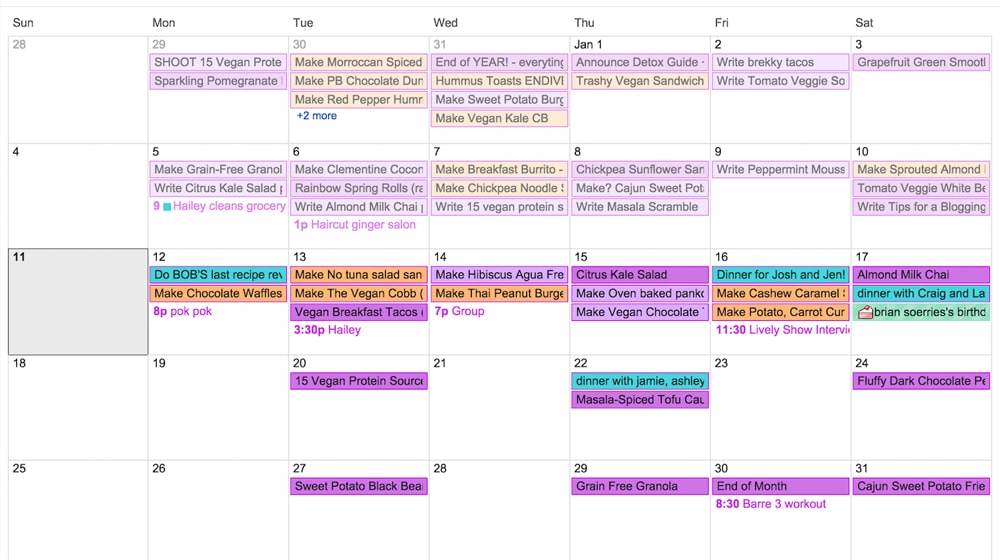
Stick to your content theme. Your niche is going to guide the topics you write about. Let's say you're a store selling mattresses. You'll want to keep your content centered around mattresses, bedding, and sleep-related topics. Writing about armchairs or running shoes or the presidential elections are all good ways to lose your audience.
Think about what your audience wants. Publishing content that interests you can be good, but what you really need to do is publish content that interests your audience. Are there common questions in your industry that they want to know the answers to? Are there concerns you need to address? Are there common usage, maintenance, or upkeep questions you get asked via your support channels?
Think about your brand identity. Maintaining a consistent voice, perspective, and tone is crucial for a blog, particularly when you're first starting out. This can mean anything from the point of view you're writing in to your political alignment and stance on current events.
Always give your reader something to do next. When they finish reading a post, what should the reader do? You can give them one option or several, and I recommend testing to figure out what works. What kind of things can you guide them to do? Clicking through to a product link is typical, but you can also cross-link other blog posts you've written, or you can get them to sign up for email notifications for future posts, product announcements, and other communications. Email integration is powerful in particular, and worth a blog post on its own later.
Final Thoughts
Blogging is a complex topic, but it's honestly not as hard as it seems. Particularly for an eCommerce store, you already have a lot of information about your audience, about your niche, and about your products. Leveraging all of that into effective blog posts is easy once you know what you're doing. Alternatively, you can always hire someone to do the work for you. There's no shame in hiring a blog manager, a ghostwriter, or a blogging company to do the legwork. Just do what works best for your company.



 30 Second Summary
30 Second Summary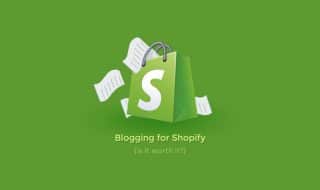


August 21, 2020
I tried to do blogging for my e-commerce website on my own while I am also the one managing it. Believe me, it was exhausting and decided I needed someone to do it for me. It took me 4 hires before I found the right person to do the writing style that I prefer. Don’t do everything on your own as so you can do more for yourself.
August 22, 2020
Preach! The problem is consistency, most business owners can blog for themselves for a while but they have trouble sticking with it week after week after week. Happy to hear you found someone that meets your expectations.
September 13, 2024
Four hires? That's a big deal!
September 14, 2024
Hey Gil!
Yeah four hires is a pretty big deal! You're right on that. It's actually kind of common for eCommerce businesses to grow quicker with a good blog team. Blogging can really help with SEO and build a brand community. More hands definitely mean more content and quality.
Have you thought about guest bloggers for some of the posts?
Hope that helps!
October 09, 2024
Do guest bloggers work well for eCommerce blogs? I'm nervous.
October 10, 2024
Hey Ciera!
Guest bloggers can definitely help with your eCommerce blog by bringing in fresh advice and attracting new readers. I've noticed that clients have been successful with them on platforms like Shopify by keeping their content varied. Are you thinking about focusing on any specific themes or topics?
Feel free to ask me if you have more questions! 😊
February 11, 2021
Love it! What calendar are you using for your content? It may help me, I'm planning on blogging more than once per week.
February 11, 2021
Hey Melanie!
We use Google Docs spreadsheets. Simple but very customizable - also free!
May 05, 2021
My wife was the one handling blogs and stuff for our business and now that it's growing, we need to hire someone who will take care of it. What's your take between freelancer vs agency?
May 08, 2021
Hey Jerry!
We wrote a post on this very subject, here:
https://www.contentpowered.com/blog/blog-contractor-inhouse-diy/
I think hiring an agency can be a bit extreme for a small growing business, but it's also a great way to ensure you're doing things the right way.
Hiring a freelancer is much more difficult.
Most of them are simply writing the article, and you're left doing the rest - topic research, SEO, graphic design, formatting, uploading and publishing, tracking, etc.
It's also more affordable, though, so it's a bit of a hybrid approach between DIY and Agency. It's possible to be successful with this strategy, it just has a lower success rate.
I hope this article is helpful to you!
October 10, 2024
Have you tried hiring a freelancer? I've always wondered how that balance works.
October 15, 2024
Hey Pete!
I've worked with many eCommerce businesses and hiring a freelancer to handle blogging really helps! They can bring new ideas and assist in keeping your content flowing smoothly.
Some of my clients often use platforms like Shopify to maintain this balance. Freelancers can add a unique touch by making sure the content stays fresh and exciting for your audience.
What do you think about this? Do you have any specific goals in mind? Just let me know if you need any more details! 😊
June 07, 2021
My dilemma now is I don't have talent in writing and managing a blog might take more of my time. Do you have any idea of how much should I pay if I decide to pay a writer that can post an article twice a week and manage my blog?
June 07, 2021
Hey Kevin!
I wrote a great guide on this subject here if you're interested:
https://www.contentpowered.com/blog/blog-posts-spend-costs/
It really depends on how much work they'll be doing. It takes a lot more than writing for a blog to succeed. If you want someone to do everything for you, it might cost a little more than you think to build effective blog articles that will actually perform.
Hope this helps!
October 08, 2024
Hey James blogging has really changed my eCommerce site's reach. It wasn't easy starting out but omg the results have been so worth it. How important is it to like mix product-focused posts with some industry-related content? I sometimes struggle to figure out the right mix!
October 09, 2024
Hey Herbert! Blogging can be a fantastic way to improve your eCommerce reach. I would suggest trying a 70-30 mix of product posts and industry content. However I've also seen others find success with different combinations. Try to see what gets your audience more interested.
Enjoy experimenting! Just let me know if you need any more tips! 😊
October 11, 2024
Do you think customer stories help engage readers
October 16, 2024
Hey Kermit!
Customer stories are really great for getting readers interested. They add a personal touch that helps to create connections. People can relate to real experiences and imagine themselves in similar situations. That's why many businesses use them to show how their products actually work in real life.
If you want to use them just let me know! 😄